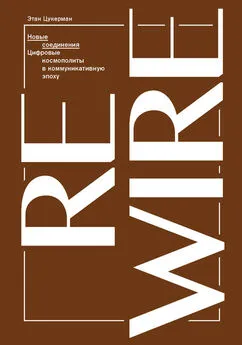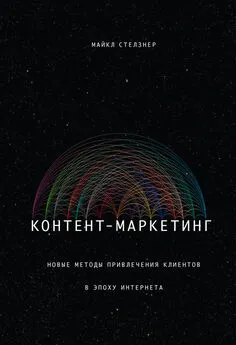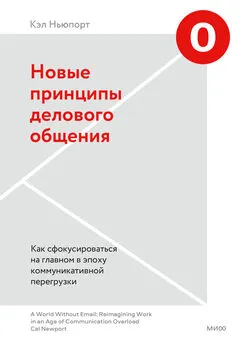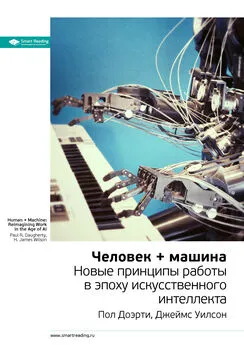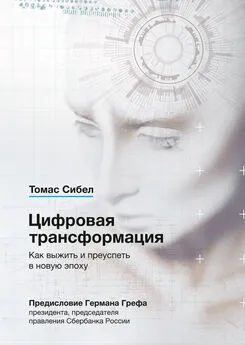Этан Цукерман - Новые соединения. Цифровые космополиты в коммуникативную эпоху
- Название:Новые соединения. Цифровые космополиты в коммуникативную эпоху
- Автор:
- Жанр:
- Издательство:ЛитагентАд маргинемfae21566-f8a3-102b-99a2-0288a49f2f10
- Год:2015
- Город:Москва
- ISBN:978-5-9113-259-3
- Рейтинг:
- Избранное:Добавить в избранное
-
Отзывы:
-
Ваша оценка:
Этан Цукерман - Новые соединения. Цифровые космополиты в коммуникативную эпоху краткое содержание
Этан Цукерман, директор Центра по изучению гражданских медиа при Массачусетском технологическом институте (MIT), интернет активист и блогер, в своей дебютной книге описывает как социальные сети, транспортные хабы и новые информационные технологии, изменяют нашу жизнь. Новый взаимосвязанный мир функционирует не совсем так, как представляют себе технооптимисты и колумнисты специализированных изданий, но тем не менее он уже существует, и научиться жить в нем, адекватно используя интернет и прочие инструменты во благо, а не во вред, – задача, которая стоит сегодня необычайно остро.
Новые соединения. Цифровые космополиты в коммуникативную эпоху - читать онлайн бесплатно ознакомительный отрывок
Интервал:
Закладка:
137
Michael Shapiro, “Six Degrees of Aggregation: How the Huffington Post Ate the Internet”, Columbia Journalism Review, May/June 2012, http://www.cjr.org/cover_story/six_degrees_of_aggregation.php?page=all; “Google Analytics and Google Apps Help The Huffington Post Keep Its Edge”, http://www.google.com/analytics/customers/case_study_huffngton_post.html
138
William Safire, Before the Fall: An Inside View of the Pre-Watergate White House (New Brunswick, NJ: Transaction Publishers, 2005), p. 392.
139
Diana Saluri Russo, “Is the Foreign News Bureau Part of the Past?”, Global Journalist, January 30, 2010, http://www.globaljournalist.org/stories/2010/01/30/is-the-foreign-news-bureau-part-of-the-past/
140
Jodi Enda, “Retreating from the World”, American Journalism Review, December/January 2011, http://www.ajr.org/article.asp?id=4985
141
“The Wall Street Journal under Rupert Murdoch”, Journalism.org, July 20, 2011, http://www.journalism.org/commentary_backgrounder/wall_street_journal_under_rupert_murdoch
142
Я спросил ведущего аналитика New York Times, не мог бы он поделиться сведениями о просмотрах международных материалов в сравнении с трафиком на местные новости. Он отказал вежливо, но твердо, пояснив, что издание не выдает такие сведения даже рекламодателям.
143
Elizabeth A. Thomson, “Freshman Publishing Experiment Offers Made-to-Order Newspapers”, MITnews, March 9, 1994, http://web.mit.edu/newsoffce/1994/newspaper-0309.html
144
Cass R. Sunstein, Infotopia: How Many Minds Produce Knowledge (New York: Oxford University Press, 2006), p. 188.
145
Eric Lawrence, John Side, and Henry Farrell, “Self-Segregation or Deliberation? Blog Readership, Participation, and Polarization in American Politics”, Department of Political Science, George Washington University, March 10, 2009, http://projects.iq.harvard.edu/cces/fles/ Lawrence_Sides_Farrell_Self-Segregation_or_Deliberation.pdf
146
Natalie Glance and Lada Adamic, “The Political Blogosphere and the 2004 U. S. Election: Divided They Blog”, Proceedings of the 3rd International Workshop on Link Discovery (2005): 36–43.
147
Eszter Hargittai et al., “Cross-ideological Discussions among Conservative and Liberal Bloggers”, Public Choice 134 (2008): 67–86.
148
John Horrigan, Kelly Garrett, and Paul Resnick, “The Internet and Democratic Debate”, Pew Internet and American Life Project, October 27, 2004, http://www.pewinternet.org/Reports/2004/The-Internet-and-Democratic-Debate.aspx
149
Mark Glaser, “Social Media Grows at NY Times, But Home Page Remains King”, MediaShift, January 13, 2011, http://www.pbs.org/media shift/2011/01 /social-media-grows-at-any-times-but-home-page-remains-king 013.html
150
Brian Stelter, “Finding Political News Online, the Young Pass It On”, New York Times, March 27, 2008, http://www.nytimes.com/2008/03/27/us/politics/27voters.html?_r=1
151
Dee T. Allsop, Bryce R. Bassett, and James A. Hoskins, “Word-of-Mouth Research: Principles and Applications”, Journal of Advertising Research, December 2007, pp. 398–410.
152
Stelter, “Finding Political News Online”.
153
Kenny Olmstead, Amy Mitchell, and Tom Rosenstiel, “Where People Go, How They Get There, and What Lures Them Away”, Pew Research Center’s Project for Excellence in Journalism, May 9, 2011, http://www.journalism.org/node/25008
154
Alexis Madrigal, “Dark Social: We Have the Whole History of the Web Wrong”, Atlantic, October 12, 2012, http://www.theatlantic.com/technology/archive/2012/10/dark-social-we-have-the-whole-history-of-the-web-wrong/263523
155
Justin Osofsky, “Making News and Entertainment More Social in 2011”, Facebook Developer Blog, December 28, 2010, http://developers.facebook.com/blog/post/443/
156
Tanya Cordrey, “Tanya Cordrey’s Speech at the Guardian Changing Media Summit”, Guardian, March 21, 2012, http://www.guardian.co.uk/gnm-press-offce/changing-media-summit-tanya-cordrey
157
“What Americans Do Online: Social Media and Games Dominate Activity”, Nielsen Wire (blog), August 2, 2010, http://blog.nielsen.com/nielsenwire/online_mobile/what-americans-do-online-social-media-and-games-dominate-activity/; “Social Networking Accounts for 1 of Every 5 Minutes Spent Online in Australia”, comScore, Inc., February 18, 2011, http://www.comscore.com/layout/set/popup/Press_Events/Press_Releases/2011/2/Social_Networking_Accounts_for_1_of_Every_5_Minutes – Spent_Online_in_Australia
158
Matt Carmichael and E. J. Schultz, “Millennial Grocery Shopping Habits and Marketing Trends”, AdAge Blogs, June 29, 2011, http://adage.com/article/adagestat/millennial-grocery-shopping-habits-marketing-trends/228480/
159
Jason Kincaid, “The Secret Sauce That Makes Facebook’s News Feed Tick”, TechCrunch, April 22, 2010, http://techcrunch.com/2010/04/22/facebook-edgerank/
160
Eli Pariser, The Filter Bubble: What the Internet Is Hiding from You (New York: Penguin Press, 2011), p. 5.
161
Barry Schwartz, “Duck! Google’s Cutts Responds to Search Filter Bubbles”, Search Engine Roundtable, June 21, 2011, http://www.seroundtable.com/google-search-bubble-response-13591.html
162
Bill Bishop, “The Big Sort Maps”, The Big Sort, http://www.thebig_sort.com/maps.php
163
Keith N. Hampton, Lauren Sessions Goulet, Lee Rainie, and Kristen Purcell, “Social Networking Sites and Our Lives”, Pew Research Center’s Internet and American Life Project, June 16, 2011, http://www.pewinternet.org/~/media//Files/Reports/2011/PIP%20-%20Social%20networking%20sites%20and%20our%20lives.pdf
164
Garry Blight, Sheila Pulham, and Paul Torpey, “Arab Spring: An Interactive Timeline of Middle East Protests”, Guardian, January 5, 2012, http://www.guardian.co.uk/ world/interactive/2011/mar/22/middle-east-protest-interactive-timeline
165
Ethan Zuckerman, “What Bloggers Amplify from the BBC”, my heart’s in accra, January 28, 2005, http://www.ethanzuckerman.com/blog/2005/01/28/what-bloggers-amplify-from-the-bbc/; “New York Times Headlines in Blogs, Seen by Technorati”, http://gapdev.law.harvard.edu/results/20050128/nytheadlines.html
166
Jonah Berger and Katherine L. Milkman, “What Makes Online Content Viral?”, Journal of Marketing Research 49, no. 2 (2012): 192–205, http://www.journals.marketingpower.com/doi/abs/10.1509/jmr.10.0353
167
Paul Butler, “Visualizing Friendships”, Facebook’s Engineering Posts, December 13, 2010, https://www.facebook.com/notes/facebook-engineering/visualizing-friendships/469716398919 Не менее самой карты поражает отсутствие на ней значительной части Азии. В Китае Facebook заблокирован, а в Южной Корее и Японии сеть развивается с большим трудом.
168
Johan Ugander, Brian Karrer, Lars Backstrom, and Cameron Marlow, “The Anatomy of the Facebook Social Graph”, November 18, 2011, http://arxiv.org/pdf/1111.4503v1.pdf В ходе обсуждения с авторами работы выяснилось, что показатели по Канаде завышены из-за неправильного подсчета пользователей фейсбука, которые заходят туда через устройства Blackberry, поэтому более реалистичной оценкой международных Facebook-связей следует считать 13,3 %.
169
“Stories”, http://www.facebookstories.com/stories/1574/interactive-mapping-the-world-s-friendships#color=continent&story=1&country=US
170
Из личной переписки по электронной почте, 10 октября 2012 года.
171
“Манифест Global Voices”, http://ru.globalvoicesonline.org/about/manifest/
172
Mahmood Nasser Al-Yousif, “About”, Mahmood’s Den, http://mahmood.tv/about/
173
Jennifer Preston, “When Unrest Stirs, Bloggers Are Already in Place”, New York Times, March 13, 2011, http://www.nytimes.com/2011/03/14/business /media/14voices.html
174
“Jay Walker on the World’s English Mania”, TED talk, February 2009, http://www.ted.com/talks/jay_walker_on_the_world_s_english_mania.html
175
Edward T. O’Neill, Brian F. Lavoie, and Rick Bennett, “Trends in the Evolution of the Public Web”, D-Lib Magazine 9, no. 4, April 2003, http://www.dlib.org/dlib/april03/lavoie/04lavoie.html
176
Ted Smalley Bowen, “English Could Snowball on the Net”, Technology Research News, November 21, 2001, http://www.trnmag.com/Stories/2001/112101/English_could_snowball_on_Net_112101.html; Neil Gandal and Carl Shapiro, “The Effect of Native Language on Inter-net Usage”, November 12, 2001, http://econ.tau.ac.il/papers/applied/language.pdf
177
Из переписки по электронной почте, 3 февраля 2011 года.
178
“Internet World Users by Language”, Internet World Stats, http://www.internetworldstats.com/stats7.htm
179
Marissa McNaughton, “Over 50 % of China’s Internet Users Regularly Blog and Use Social Media”, Realtime Report, January 10, 2011, http://twtrcon.com/2011/01/10/over-50-of-chinas-internet-users-regularly-blog-and-use-social-media
180
Ahmad Humeid, 360° East, http://www.360east.com/
181
Daniel Sorid, “Writing the Web’s Future in Many Languages”, New York Times, December 30, 2008, http://www.nytimes.com/2008/12/31/technology/internet/31hindi.html?pagewanted=2
182
Ведь она знает только английский, испанский, датский, немецкий и французский.
183
Рассматривать язык как инструмент, а не как врожденную когнитивную функцию предлагали целый ряд философов и лингвистов. См.: Andy Clark, “Magic Words: How Language Augments Human Computation”, http://www.nyu.edu/gsas/dept/philo/courses/concepts/magicwords.html, или Daniel L. Everett, Language: The Cultural Tool (New York: Pantheon, 2012).
184
Интервал:
Закладка:
